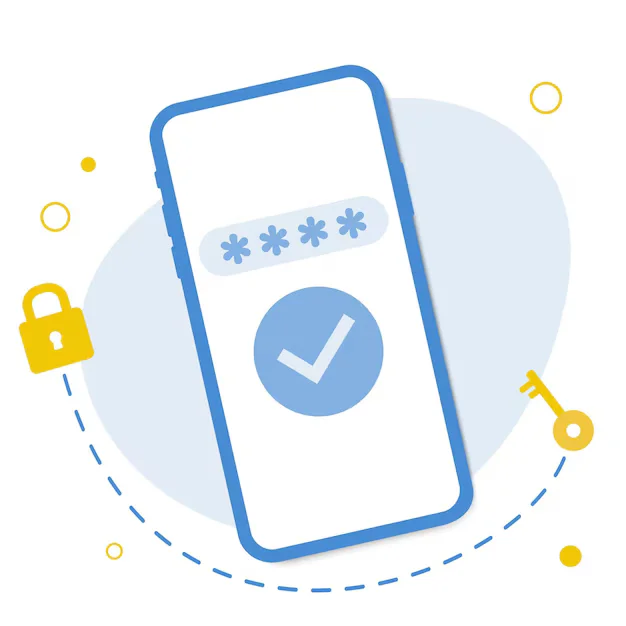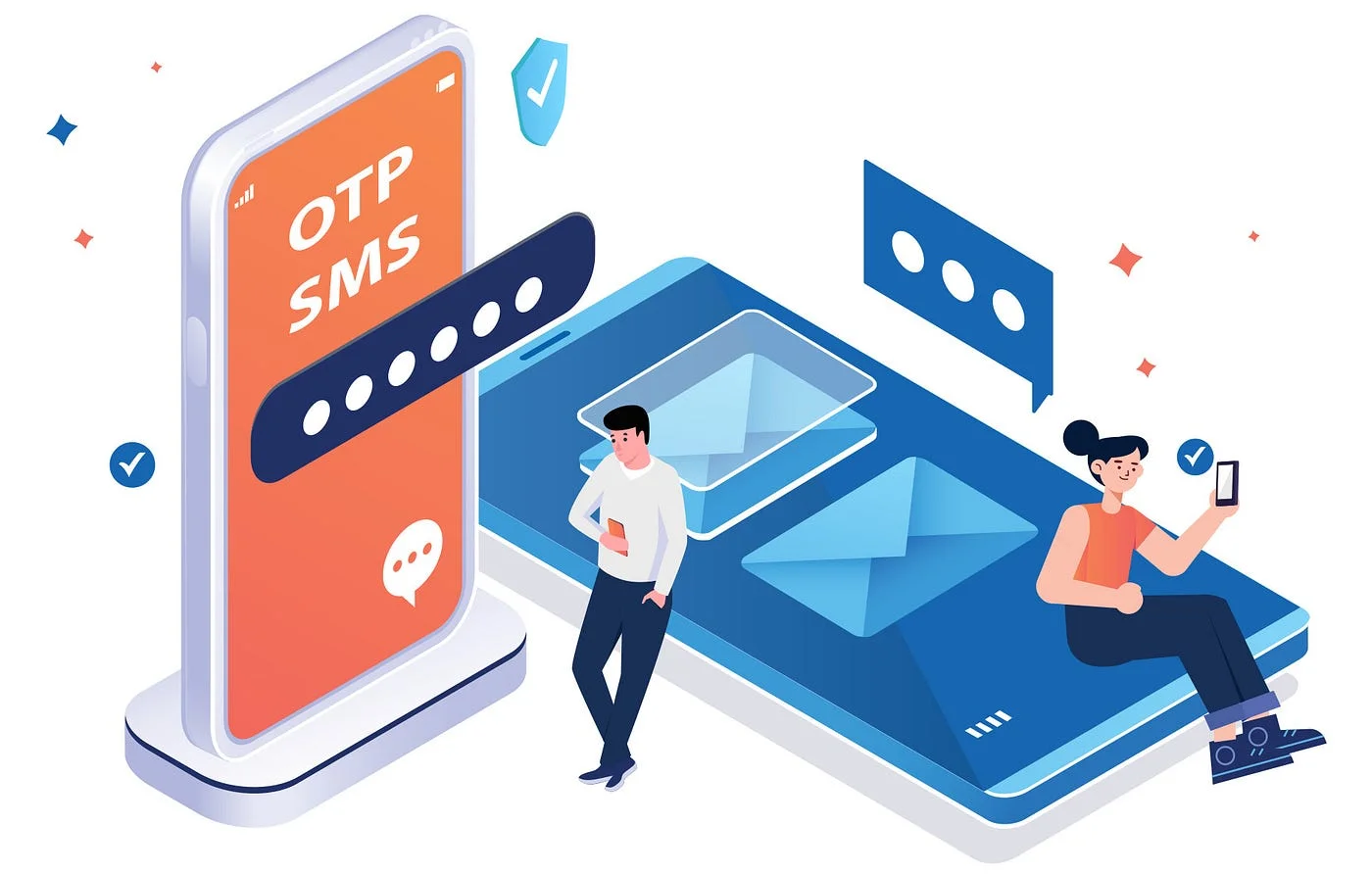Cybersecurity Tips: How To Protect Your Data In 2025
Cybersecurity Tips: How To Protect Your Data In 2025

As we move further into the digital age, the importance of cybersecurity continues to grow. With each new technological advancement, cybercriminals are becoming more sophisticated, making it crucial for individuals and businesses to protect their data. In 2025, the digital landscape is expected to evolve even further, and securing sensitive information has never been more important. In this blog post, we’ll share essential cybersecurity tips to help you safeguard your data and stay safe online.
- Use Strong, Unique Passwords
- One of the most basic yet effective ways to protect your data is by using strong, unique passwords for each of your accounts. Weak passwords are an open door for hackers, as they can easily guess or crack them through brute force attacks. In 2025, it’s more important than ever to:
Avoid using easily guessable passwords like “123456” or “password.”
Use a mix of letters, numbers, and special characters.
Consider using passphrases (e.g., “BlueSky$2025!”) to make your passwords even harder to guess.
Use a password manager to securely store your passwords and generate strong ones.
- One of the most basic yet effective ways to protect your data is by using strong, unique passwords for each of your accounts. Weak passwords are an open door for hackers, as they can easily guess or crack them through brute force attacks. In 2025, it’s more important than ever to:
- Enable Multi-Factor Authentication (MFA)
- Multi-factor authentication (MFA) adds an extra layer of security to your accounts by requiring more than just a password to log in. In 2025, MFA will continue to be a critical tool for securing online accounts. Here’s how it works:
Something you know (your password).
Something you have (a code sent to your phone or email).
Something you are (biometric authentication, such as a fingerprint or facial recognition).
By enabling MFA on your accounts, even if a hacker obtains your password, they won’t be able to access your information without the additional authentication factor.
- Multi-factor authentication (MFA) adds an extra layer of security to your accounts by requiring more than just a password to log in. In 2025, MFA will continue to be a critical tool for securing online accounts. Here’s how it works:
- Keep Your Software and Systems Updated
- Cybersecurity threats often exploit vulnerabilities in outdated software and systems. Regularly updating your software ensures you have the latest security patches to protect against known threats. This includes:
Operating system updates (Windows, macOS, Linux).
Application updates (browsers, email clients, office software).
Firmware updates (routers, smart devices, etc.).
In 2025, cybercriminals are expected to target the Internet of Things (IoT) devices even more, so ensuring that all your devices are up-to-date will be crucial for your cybersecurity.
- Cybersecurity threats often exploit vulnerabilities in outdated software and systems. Regularly updating your software ensures you have the latest security patches to protect against known threats. This includes:
- Use a Virtual Private Network (VPN)
- A Virtual Private Network (VPN) is essential for maintaining your privacy and security, especially when using public Wi-Fi networks. A VPN encrypts your internet connection, making it difficult for hackers to intercept your data. In 2025, VPN usage will be more important than ever, as cybercriminals increasingly target unsecured public networks to steal sensitive data. Whether you’re using a coffee shop Wi-Fi or traveling abroad, using a VPN can help protect your data and privacy.
- Be Cautious with Phishing Attacks
- Phishing attacks are a common method used by cybercriminals to steal personal information. These attacks typically come in the form of deceptive emails, text messages, or websites that appear legitimate but are actually designed to trick you into giving away sensitive information. To protect yourself from phishing in 2025:
Be cautious of unsolicited emails or texts asking for personal information or login credentials.
Check the sender’s email address to ensure it’s legitimate.
Avoid clicking on suspicious links or downloading attachments from unknown sources.
Always verify the website’s URL before entering any sensitive data.
- Phishing attacks are a common method used by cybercriminals to steal personal information. These attacks typically come in the form of deceptive emails, text messages, or websites that appear legitimate but are actually designed to trick you into giving away sensitive information. To protect yourself from phishing in 2025:
- Encrypt Your Data
- Data encryption is one of the best ways to protect sensitive information. In the event that your device is lost or stolen, encryption ensures that your data remains unreadable without the proper decryption key. In 2025, encryption will continue to be a standard best practice for individuals and businesses alike. Encrypt files, emails, and backup data to keep it secure from unauthorized access. Use full-disk encryption (e.g., BitLocker, FileVault) for your computer or mobile device.
Encrypt your backups to ensure that even if hackers gain access to your storage, they can’t read your files.
- Data encryption is one of the best ways to protect sensitive information. In the event that your device is lost or stolen, encryption ensures that your data remains unreadable without the proper decryption key. In 2025, encryption will continue to be a standard best practice for individuals and businesses alike. Encrypt files, emails, and backup data to keep it secure from unauthorized access. Use full-disk encryption (e.g., BitLocker, FileVault) for your computer or mobile device.
- Limit the Use of Public Wi-Fi
- Public Wi-Fi networks are convenient, but they are also a common target for hackers. If you must use public Wi-Fi, follow these tips to protect your data:
Use a VPN when connecting to any public Wi-Fi network to encrypt your traffic.
Avoid accessing sensitive accounts (banking, email, etc.) over public Wi-Fi unless you have a secure VPN connection.
Turn off sharing features and Wi-Fi auto-connect options to prevent unauthorized access.
- Public Wi-Fi networks are convenient, but they are also a common target for hackers. If you must use public Wi-Fi, follow these tips to protect your data:
- Monitor Your Accounts and Devices Regularly
- In 2025, continuous monitoring will be essential for early detection of cyber threats. Regularly check your accounts and devices for any unusual activity:
Review your bank and credit card statements for unauthorized transactions.
Monitor your social media and email accounts for any suspicious logins or password changes.
Use security software to detect malware and other threats on your devices.
Being proactive about monitoring can help you identify threats before they escalate into major security breaches.
- In 2025, continuous monitoring will be essential for early detection of cyber threats. Regularly check your accounts and devices for any unusual activity:
- Secure Your Home Network
- With more people working from home in 2025, securing your home network is critical. A compromised home network can lead to a breach of personal and work-related data. Here’s how to secure your home network:
Change the default router password and use a strong, unique one.
Enable WPA3 encryption for your Wi-Fi network.
Use separate networks for personal and work devices if possible.
Regularly update your router’s firmware to protect against vulnerabilities
- With more people working from home in 2025, securing your home network is critical. A compromised home network can lead to a breach of personal and work-related data. Here’s how to secure your home network:
Conclusion
In 2025, protecting your data is more critical than ever. Cybercriminals are constantly evolving their tactics, but by following these cybersecurity tips, you can reduce the risk of becoming a victim. Whether it’s using strong passwords, enabling multi-factor authentication, or ensuring your devices are secure, taking these steps will help you safeguard your personal and business data.
Stay vigilant, keep up with the latest cybersecurity trends, and remember that your digital security is only as strong as the actions you take to protect it.



